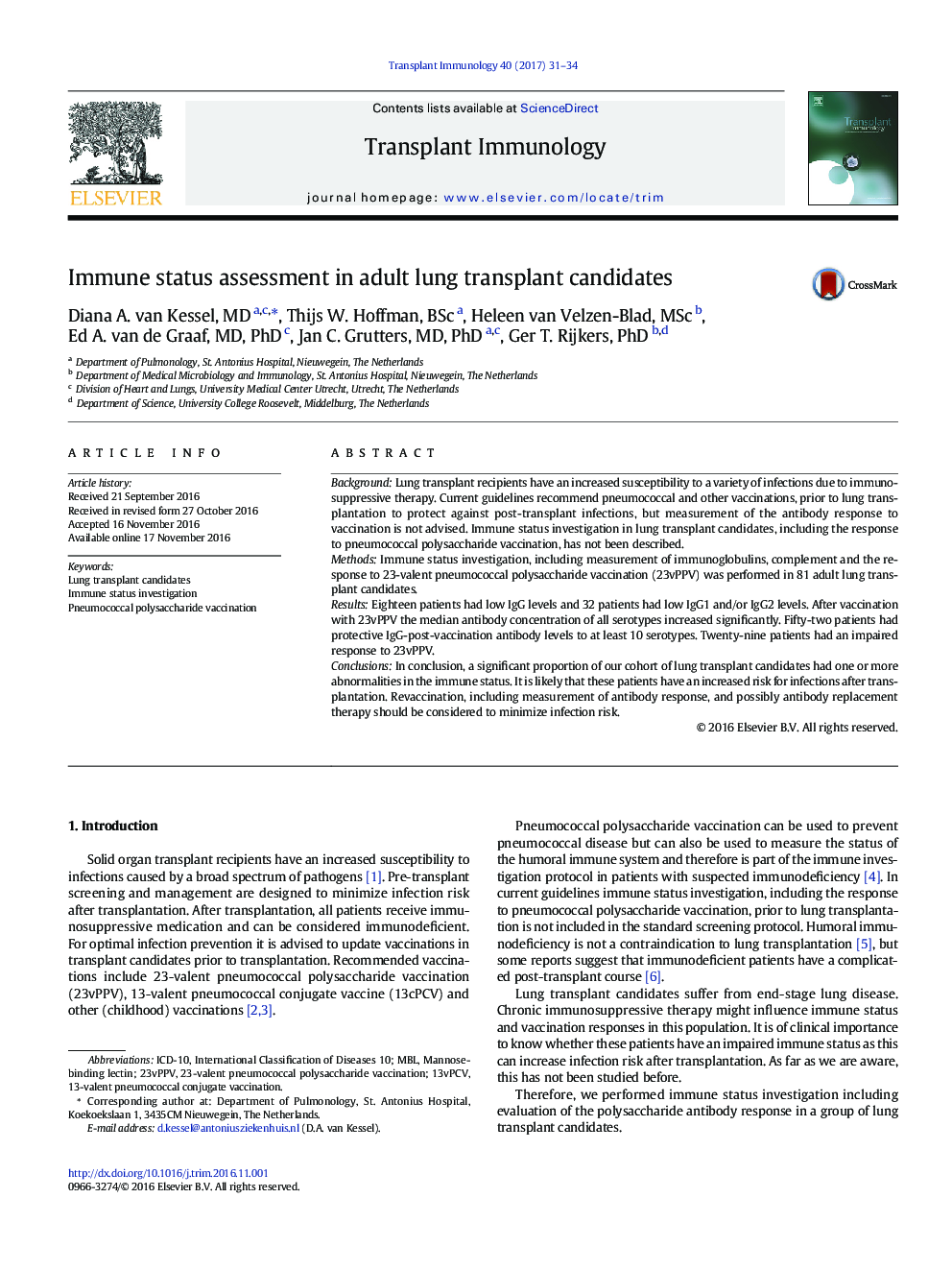| Article ID | Journal | Published Year | Pages | File Type |
|---|---|---|---|---|
| 5670481 | Transplant Immunology | 2017 | 4 Pages |
â¢Half of lung transplant candidates had an impaired response to vaccination (23vPPV).â¢One fifth of lung transplant candidates had low IgG levels.â¢Two fifths of lung transplant candidates had low IgG1 and/or IgG2 levels.
BackgroundLung transplant recipients have an increased susceptibility to a variety of infections due to immunosuppressive therapy. Current guidelines recommend pneumococcal and other vaccinations, prior to lung transplantation to protect against post-transplant infections, but measurement of the antibody response to vaccination is not advised. Immune status investigation in lung transplant candidates, including the response to pneumococcal polysaccharide vaccination, has not been described.MethodsImmune status investigation, including measurement of immunoglobulins, complement and the response to 23-valent pneumococcal polysaccharide vaccination (23vPPV) was performed in 81 adult lung transplant candidates.ResultsEighteen patients had low IgG levels and 32 patients had low IgG1 and/or IgG2 levels. After vaccination with 23vPPV the median antibody concentration of all serotypes increased significantly. Fifty-two patients had protective IgG-post-vaccination antibody levels to at least 10 serotypes. Twenty-nine patients had an impaired response to 23vPPV.ConclusionsIn conclusion, a significant proportion of our cohort of lung transplant candidates had one or more abnormalities in the immune status. It is likely that these patients have an increased risk for infections after transplantation. Revaccination, including measurement of antibody response, and possibly antibody replacement therapy should be considered to minimize infection risk.
Graphical abstractDownload high-res image (160KB)Download full-size image
